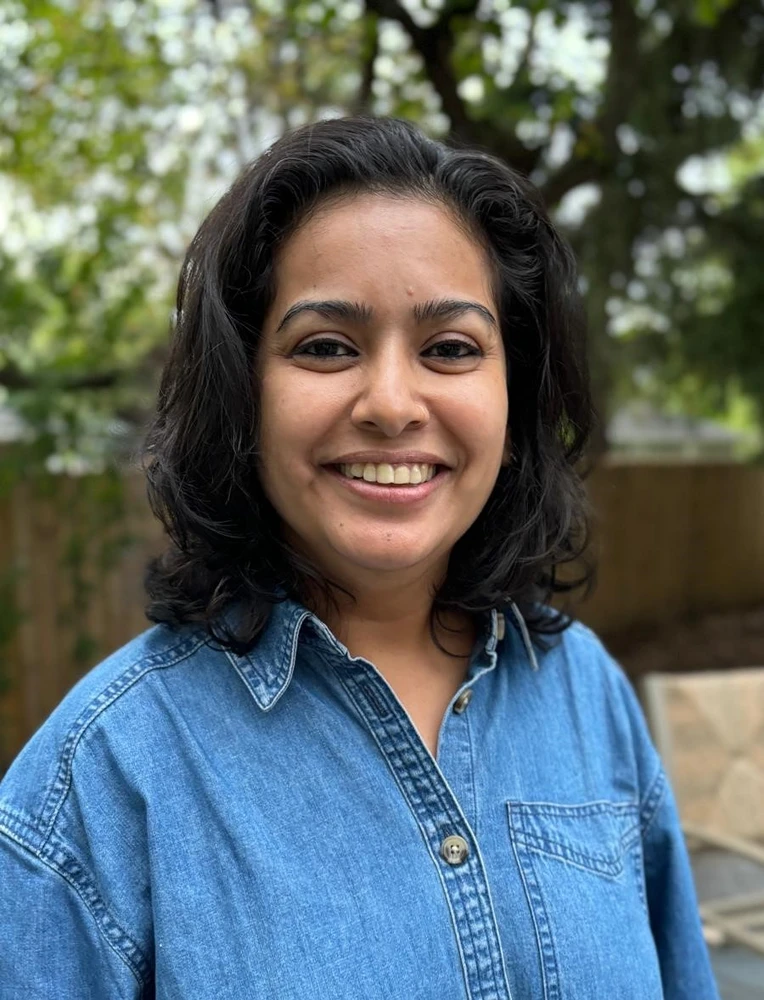
This fall, the Department of History is excited to welcome Deepasri Baul to our faculty as an assistant professor. Professor Baul is a historian of modern South Asia, specializing in urban history, property regimes, and religious politics. Her research analyses how urban space is produced through the intersection of religion and property in late colonial Delhi.
Previously Baul was the Andrew W. Mellon Postdoctoral Fellow in the Humanities at the Asian University for Women in Chattogram, Bangladesh. Originally from India, Baul sought to work in the United States because she wanted to work in a country that would provide her with more academic freedom, which is particularly important for her work on religious fundamentalism.
She’s currently writing her first book, Divine Interventions: Urban Space and Religion in late Colonial Delhi. The book is a bottom-up analysis of property-making in Delhi in the early 20th century, under colonial rule. She examines how public action centered around religion made decisive interventions in the urban landscape of Delhi in response to the British government’s land acquisition.
The book starts in 1911, when the British decided to move their imperial capital from Calcutta to Delhi and began to acquire common lands to build a new city. This land acquisition created panic and residents sought to reclassify community spaces as religious sites to protect them from acquisition or demolition. The politics of sacred spaces strengthened religious identities in the city, and exacerbated tensions between Hindu and Muslim groups. This played a role in the Hindu-Muslim riots of the 1920s and 30s that redrew the boundaries of neighborhoods in the city. Baul ultimately examines how these public battles over land made it into the courtroom and religion entered the language and logic of urban property in modern South Asia.
She has also started a new contemporary history project that looks at alternative historical narratives in North Indian popular literature that conflict with history taught in universities. Baul has collated an archive of cheap religious tracts, tourist guides and local histories from Hindu temple towns. This literature peddles a Hindu mythological conception of the national landscape and history, she said.
“So there is a reading public in North India, which subscribes to an idea of the nation which resonates very closely with an upper-caste Hindu sensibility, and world order. This moral universe is of a particular kind, and the market in that literature must map on to the political constituency of the Hindu right,” she said.
She will also explore how these historical narratives are tied to the cultural milieu of traditional Hindu trading and business castes in North India.
“This explosion of Hindutva, or Hindu nationalism, you see is a sign of their economic ascendancy,” she said. “That culture is expanding because those are the groups that reaped most of the rewards of globalization in India. So in a sense, I read the popularity of Hindutva politics as an articulation of economic power as culture, as national culture.”
This fall she is teaching HIST 130: History of South Asia. Most of the course is organized around the nation state and nationalism, which is a dominant narrative of South Asian history. She hopes to show students how South Asian nationalism was a response to British colonialism and how gender, caste politics, and religious identity intersect around nationalism.
She hopes to teach courses on urban history, graduate seminars on theories of space, and has an idea for a course that will look at how colonialism has shaped landscapes of the modern world.
Her favorite part of teaching is that lightbulb moment, when students take concepts they’ve learned and apply them to different contexts.
“As a history teacher, I also get very excited when they can think about history as not just a dry academic discipline, but as a form of political activism,” she said. “That writing, reading, or patronizing a particular kind of history can be part of people’s personal politics, but also an entry point into wider networks of solidarity.”